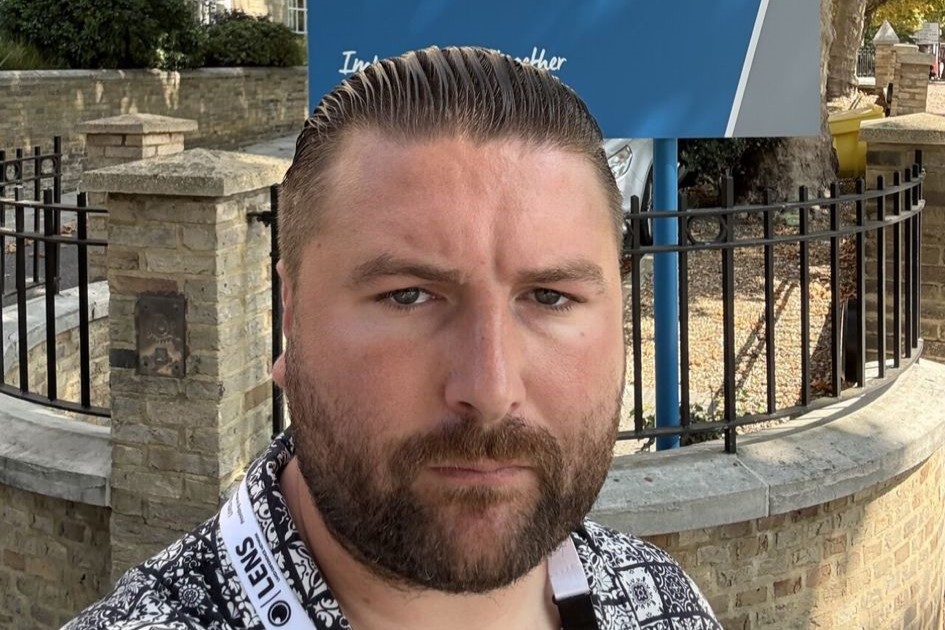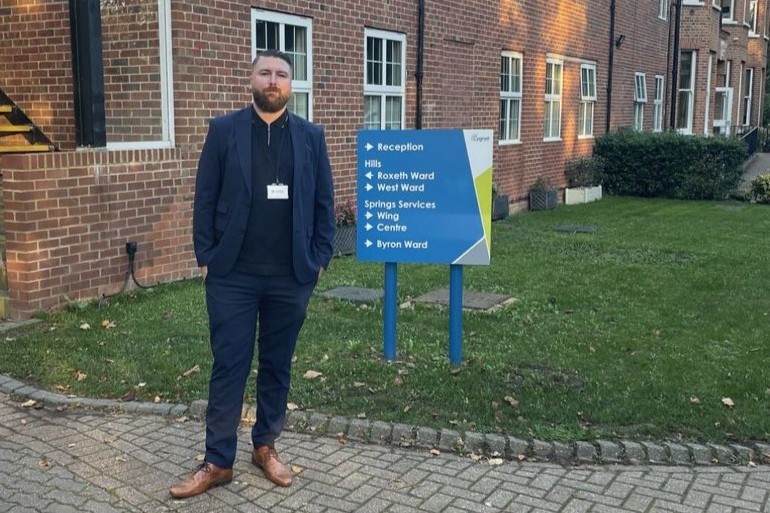
Bill, 35, of Penge, near Crystal Palace, is an Expert by Experience for LENs (Lived Experience Network) and uses his insight as a former service user to support patients across four of Cygnet Health Care’s London-based hospitals; Cygnet Churchill, Cygnet Hospital Blackheath, Cygnet Lodge Lewisham and Cygnet Bostall House.
Bill’s journey began as a teenager struggling with anxiety, substance use, and a lack of effective support in the community.
“My first contact with mental health services was when I was about 15 or 16,” Bill recalls. “I was struggling a lot with anxiety, smoking a lot of drugs, drinking, and essentially I went off the rails. My parents were in despair and tried everything to get me help through CAMHS, but I didn’t really engage.”
After spending the latter part of his teens in prison, from the age of 16 to 19, Bill was released, only to commit another, more serious crime, when he was unable to access support.
After several more years in prison, Bill was finally moved into an NHS mental health service and was eventually diagnosed with a personality disorder and began a long road to recovery.
“When I first went into hospital, it was a horrible experience,” he says. “But looking back, I’m actually grateful it happened. It’s made me the person I am today. I’m stable, I’m working, I have a family, and I get to help people who are where I once was.”
Finally released from services at the age of 31, it was his former hospital director who recognised Bill’s potential and encouraged him to use his lived experience to support others. After training as an Expert by Experience (EBE), Bill joined LENs, and now works across Cygnet Health Care services to ensure the voice of service users is heard.

“I love my job,” he says. “I think people relate to me because I treat everyone the same, whether they’re a doctor or a patient. I don’t judge anyone. I just try to be real and normalise things, because when you’re in hospital, the best thing is to be treated like a person, not a patient. Even small things like talking about football or what they watched on TV last night can create a big breakthrough with someone.”
Bill spends his time talking with individuals being supported across the services, offering hope, listening to concerns, and helping staff understand the lived experience perspective. His authenticity and empathy have made him a trusted presence across the hospitals he visits.
“I’ve had people come up to me and say, ‘You give us hope.’ That’s the best feeling,” Bill says. “I can tell them honestly, ‘I’ve been there’. I’ve been in seclusion, I’ve been locked up for years in high security and medium secure services. But now I’m free of services, free of medication, I have a worthwhile job, and I have a family. Life doesn’t stop. There’s hope beyond these walls.”
Bill says his main goal is to “give hope and inspiration to service users, and make sure their voices are heard.”
“I’m not an activist,” he explains. “I just try to observe, listen and gently challenge when things could be better. The most important thing I do is to not judge. I’m here for the service users, purely for them.”
Reflecting on his journey, Bill says he is proud of how far he’s come, but remains grounded.
“When I was in hospital, I had a dream to work, to be in the community, to have a family. I’ve achieved all of that,” he says. “So yes, I am proud. But I always want more and feel there’s still a lot of difference I can make.”
His message for men who may be struggling with their mental health was to ‘open up’.
He said: “The most important thing is to express how you feel and talk to people. The worst thing you can do is bottle it up. There’s still so much stigma, especially for men, about showing emotion, but keeping it inside just makes things worse. Talking saves lives.”
Raf Hamaizia, Expert by Experience Lead at Cygnet, reflected on the importance of men like Bill sharing their story.
He said: “We know men can sometimes bottle up their feelings and struggle to be open. Hopefully by sharing Bill’s story we can encourage and inspire men to reach out for help if they need it.
“His story is genuinely inspiring and he has turned negative experiences into something which is benefitting wider society. He is a true example of someone who has gone from the ward to the workforce, seeking employment and giving back to society.
“Our Expert by Experience programme improves public safety by providing a positive and safe role for those who have been in mental health care. The sense of purpose it gives them lowers re-admission rates and helps them to stay well within a supportive employment framework.
“Most importantly, they give current individuals in the mental health system hopes of a brighter future.”